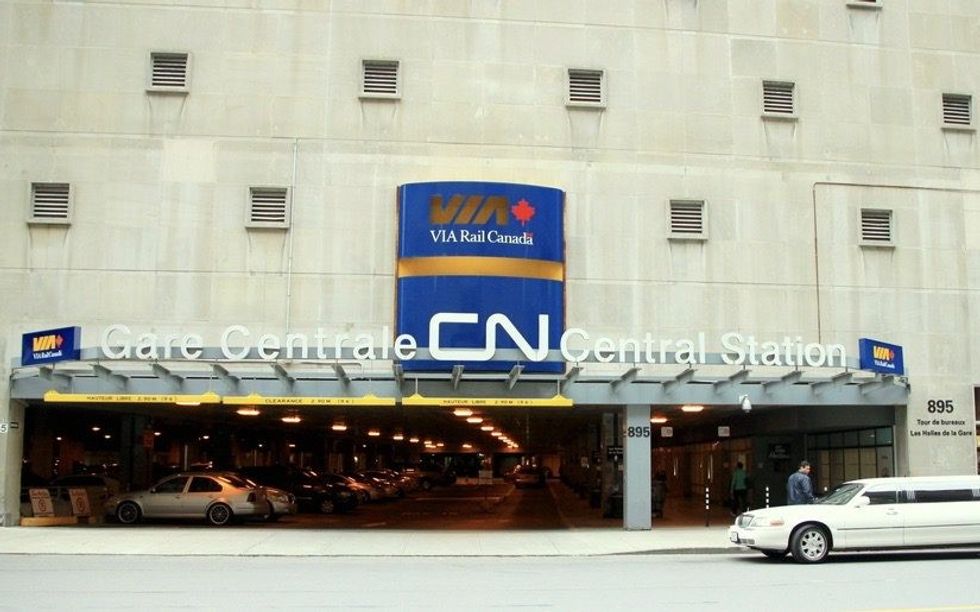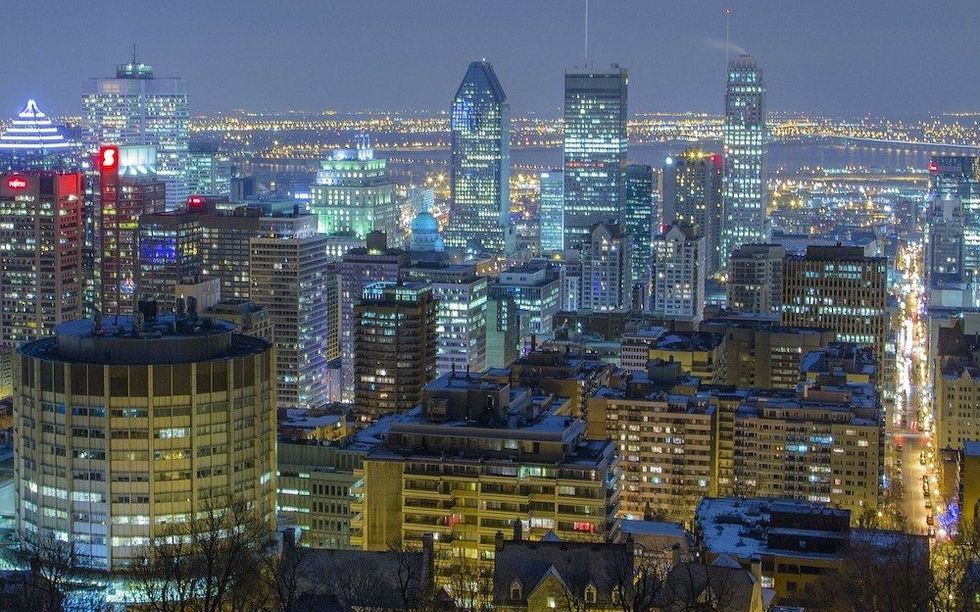A consortium-led $5.7 billion purchase of a major REIT not only has strong potential to spur fresh development in Montreal’s urban core over the years to come but it suggests an auspicious future for a city that has been, for decades, beleaguered by political instability and economic stagnation.
As result, STOREYS is naming Iris Acquisition II LP’s purchase of Cominar its commercial real estate deal of 2021.
Iris is a consortium led by Canderel Real Estate Property, which plucked 81 of Cominar’s most desirable downtown holdings, including Gare Centrale, a major commuter hub that also includes train service to the rest of Canada through VIA Rail and the United States through Amtrak, as well as Place Alexis Nihon and Rockland Centre. Cominar owns 310 office, commercial and industrial properties mostly in Montreal, as well as in Quebec City and Ottawa.
READ:
- STOREYS’ 2021 Real Estate Project of the Year: One Delisle
- STOREYS’ 2021 Real Estate Issue of the Year: Inclusionary Zoning
- STOREYS’ 2021 Real Estate Newsmaker of the Year: Tiff Macklem
- STOREYS’ 2021 Design Trend of the Year: The Post-COVID Pantry
“The trophy properties are the ones located in downtown Montreal and the centre of the Island of Montreal, and the North Shore and South Shore, at major intersections near densely-populated neighbourhoods, and all the routes and public transport,” Brett Miller, CEO of Canderel, told STOREYS in October, adding that there are two key properties. “The first is Gare Centrale, which has four components: there’s a long-term lease for the train tracks -- that’s an infrastructure play; there’s the global headquarters for CN with a long-term lease in the office; there’s all of the retail services related to the commuter traffic through Gare Centrale, and it has service-retail that will increase substantially because Montreal’s new rapid transit system will have a station there, so the volume of traffic will be increasing substantially; and the fourth component are the development opportunities.”

Montreal-based broker and Owner of McGill Real Estate, Patrice Groleau, told STOREYS that the large consortium was backed by international money and that it bespeaks global investor confidence in Canada’s second-largest city. Moreover, he believes that given how much demand exists in the city, if any of the players involved in the transaction hit a wall, they’d easily alter course because the Cominar portfolio is replete with money-making real estate.
“Demand in the city is huge and that’s the reason these guys are buying these -- if scenario A doesn’t work, there’s B, C, D, and one of them will make money. Years ago, you looked at a tower and how many vacancies it had, but now you can demolish it and build a 40-storey tower,” Patrice Groleau said.
Montreal has had its fair share of struggles in recent decades. The secession movement that culminated in two referendums, the second of which nearly resulted in Quebec separating from Canada, chased business down Highway 401 to Toronto and Montreal never quite recovered. However, there is an overarching reason Montreal is primed for a comeback: compared to Toronto and Vancouver, respectively Canada’s largest and third-largest cities, housing is relatively affordable, which makes it attractive to businesses that reckon they shouldn’t have much trouble enticing employees to live there. However, given Montreal’s leading post-secondary institutions, including McGill University -- there are six universities and 12 junior colleges in Montreal -- the city is not only well-positioned to attract students from the rest of Canada and abroad, it’s poised for successful retention.
“The demand for student visas is booming. There are rising salaries in Montreal, too, because there’s missing manpower in every sector, and if you’re a student looking at where to study and live, Quebec is a great place and the numbers confirm that,” Groleau said, adding that even Montrealers who fled the city during the onset of the COVID-19 pandemic are returning.
The Cominar sale isn’t slated to close until January but Ray Wong of Altus Group, a data solutions and advisory firm for the global commercial real estate industry, doesn’t anticipate any hiccups. He says that whenever an office property is mixed with additional employment opportunities and transit, it becomes a prime asset.
But housing affordability appears to be the biggest draw for Montreal, and that should abet further development, Wong says.
“When there’s uncertainty, especially with referendums, we’ve seen it causes some hesitation for business, but if you look at the record growth in the tech sector in Canada over the last number of years and look at price points in Vancouver and Toronto, places like Ottawa and Montreal have benefitted from that growth and movement,” Wong, Vice President of Data Operations and Data Solutions, said. “During the last few years, very good talent has relocated to areas like Ottawa and Montreal, so it’s a draw with certain types of companies. There has been lots of growth in Montreal, which is based on lower office rental rates compared to Toronto and Vancouver, and with the exception of the last 18 months, there’s more choice for tenants to have that space with a combination of people, and it makes Montreal stand out.”
From a commercial real estate perspective, while Montreal lost its place in the pecking order to Toronto a long time ago, it has all of the market fundamentals needed to usurp Vancouver. In fact, even in 2019, Montreal, at $8.8 billion in commercial real estate investment, outpaced Vancouver’s $7.1 billion, and Wong suspects that it will officially overtake the West Coast city by the end of 2021, if not some time next year.
“Montreal has the market fundamentals to usurp Vancouver but it’s a matter of availability of product in Montreal,” Wong said. “With the Canadian marketplace, we have seen pent up capital this year, but sometimes it doesn’t play out because of availability, or lack thereof.”
Montreal has a stable horizon -- if it didn’t, the Cominar sale probably wouldn’t have occurred, Wong surmises -- and the Cominar sale will very likely result in key redevelopment projects in downtown Montreal that will maintain the sort of momentum not seen in the city since the Habs last won five straight Stanley Cups.
Additionally, Montreal‘s retail sector is in pretty good shape considering the world is mired in a pandemic and the rise of e-commerce shows nary a sign of abating.
“Any time you add density or additional space to a property -- all you have to do is look at Union Station in Toronto -- with the office space in Montreal and its high employment concentration, it becomes an easier point to get to,” Wong said. “As well, the opportunities in Montreal’s tech and software sectors, which are looking to recruit and retain employees, means there should be more potential for the Montreal marketplace. Retail looks to be quite active in 2021 compared to the last couple of years. We hear about brick and mortar going away but there’s opportunity in those assets, and if you add residential, you increase the return on investment on those properties. It’s the same thing with these [Cominar] properties in downtown Montreal: the growth opportunities have repositioned them and if you add density, more office use and ancillary retail or condos or some other residential use, you create opportunities for growth.”






















